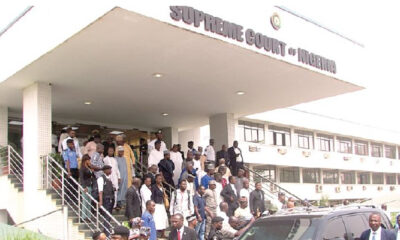The Lagos Chamber of Commerce and Industry (LCCI) says Nigerian businesses may likely face greater challenges in the new year, urging them to prepare for “more stress.”
In a statement on Monday, Chinyere Almona, LCCI’s director-general, said businesses are likely to face higher interest rates when the next Central Bank of Nigeria (CBN) Monetary Policy Committee (MPC) meeting holds.
“The persistent rise in the inflation rate, reaching a 28-year record high of 34.60 in November, continues to fuel a tense business environment as elevated prices constrain various business operations,” Almona said.
“The Lagos Chamber of Commerce and Industry (LCCI) is particularly concerned because, with the persistent and unabated rise in inflation, businesses should prepare for more stress from the burden of higher interest rates as we enter the new year.”
“With the raging inflation rate, the unsuccessful attempt of the Central Bank to reduce the currency in circulation, and approaching a high-spending festive period, we are set to contend with even higher interest rates as the expected outcome from the next decisions by the CBN Monetary Policy Committee (MPC).”
Almona explained that a high inflation rate has significant implications, including reduced consumer spending.
She said it negatively impacts the economy by reducing disposable income, increasing business costs, and discouraging investments, ultimately threatening economic growth.
‘FOREIGN DIRECT INVESTMENT IN NIGERIA DROPPED TO $103.82M IN Q3 2024’
According to the statement, foreign direct investments (FDIs) in Nigeria dropped to $103.82 million in Q3 2024, making the country less attractive to investors.
Almona said interest rates have had limited success in curbing inflation, but reforms aimed at boosting production have shown some promise.
She expressed hope that the reforms would eventually have a stronger impact on key indicators such as inflation, interest rates, and exchange rates.
The director-general said a coordinated effort is required to drive oil production to earn more forex, which is needed to defend the naira in the short term.
“The new investments recently entering the oil fields can be well supported with a sound regulatory environment to sustain and attract more,” she said.
“A disappointing negative record of our capital importation at $1.25bn during the third quarter of 2024 compared with $2.60bn recorded in the preceding second quarter of the year points to an unattractive environment for investors.”
“Foreign Direct Investment, the most critical investment that shows long-term investor confidence, accounted for only $103.82m, or 8.29 percent.”
Almona added that the fight against terrorism and crime must be sustained to ensure the safety of farmlands.
She noted that the rising costs of food, energy, housing, transportation, and services are driving inflation, worsening economic conditions, and reducing both purchasing power and business profitability.
However, Almona stated that the LCCI believes ongoing reforms have the potential to deliver significant benefits, enabling the economy to return to a growth path and achieve positive outcomes for critical economic indicators, provided they are sustained.

 BIG STORY1 day ago
BIG STORY1 day ago
 BIG STORY3 days ago
BIG STORY3 days ago
 BIG STORY4 days ago
BIG STORY4 days ago
 BIG STORY3 days ago
BIG STORY3 days ago
 BIG STORY2 days ago
BIG STORY2 days ago
 BIG STORY2 days ago
BIG STORY2 days ago
 BIG STORY1 day ago
BIG STORY1 day ago
 BIG STORY3 days ago
BIG STORY3 days ago
























